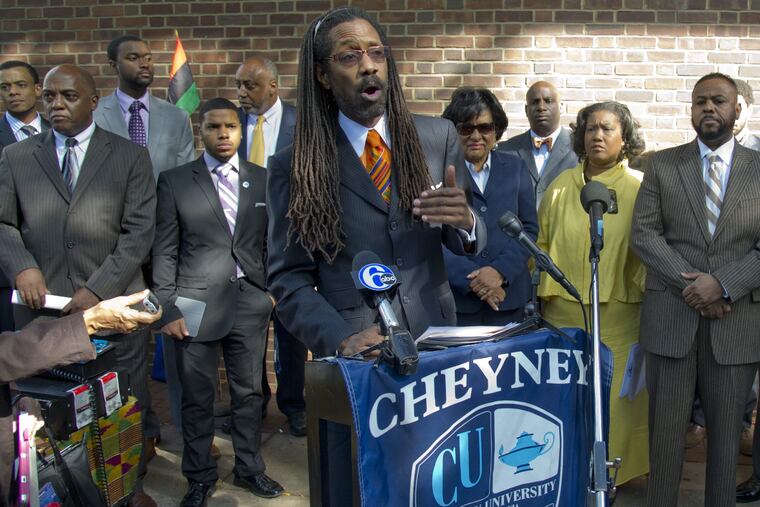Cheyney University is a phoenix rising thanks to new partnerships | Opinion
Elected officials and corporate leaders deserve tremendous accolades for doing the right thing. However, that right thing — first and foremost — must maintain Cheyney's historic mission of educating black students.

In Greek mythology, the phoenix rises from the despair of destruction to the ecstasy of excellence.
Although that is an apt reference to the great news announced on July 31 concerning Cheyney University, an even better and even more culturally applicable reference is "And Still I Rise," Maya Angelou's 1978 poem about rising above the obstacles white society places upon its black members. In it, she proclaims:
"You may write me down in history
With your bitter, twisted lies
You may trod me in the very dirt
But still, like dust, I'll rise."
Cheyney — the oldest black institution of higher learning in America, founded in 1837– rises, thanks to Gov. Tom Wolf, state Rep. and Pa. Legislative Black Caucus Chairman Jordan Harris, state Sen. and Cheyney University Council of Trustees Member Vincent Hughes, Cheyney University President Aaron Walton, Cheyney University Council of Trustees Chairman Robert Bogle, and others.
>> READ MORE: Cheyney University to partner with Thomas Jefferson, Starbucks in a comeback bid
They all came together last week to announce the creation of the school's on-campus Institute for the Contemporary African-American Experience (ICAAE), which is a cultural solutions-oriented think tank that will involve a collaboration with Thomas Jefferson University's Medical College, Epcot Crenshaw Corp., and Starbucks Foundation to promote the academic, employment, and community service interests of Cheyney students. That's wonderful news, most notably regarding Starbucks, assuming it doesn't call the cops on black students for "loitering" in classrooms. But I digress.
Cheyney, an all-time great institution, during the past several years has had to confront an all-time low student enrollment along with an all-time high budget deficit. Although it continues to do so, the future looks bright thanks to the recent news. But why was the recent past so dismal? Was it the result of self-inflicted wounds or something external?
>> READ MORE: Can Cheyney, the nation's oldest HBCU, survive?
It was clearly something external. Here's the proof:
1901: While Cheyney was a stand-alone teacher training school, the Commonwealth of Pennsylvania paid the full yearly tuition and stipend of $140 to white students to attend white state-owned teacher training schools but paid only $25 to Cheyney students.
1969: The commonwealth was identified by the U.S. Department of Education as one of the 10 worst states (including the usual suspects, namely Mississippi, Georgia, North Carolina, et al.) for discriminating against blacks in higher education.
1983: The commonwealth for the first time ever finally submitted a formal anti-racial discrimination plan that was deemed acceptable by the U.S. Department of Education following repeated warranted rejections. It was later discovered that plan wasn't worth the paper it was written on.
1999: At the insistence of the U.S. Department of Education's Office for Civil Rights, the commonwealth signed a contract to resolve issues of racial discrimination against Cheyney. State officials signed that contract which, by this year, should've resulted in at least $100 million to Cheyney for essential resources, including attractive academic courses, quality administrators, new buildings, etc. However, 19 years later, most of that $100 million is still owed to Cheyney.
But the past is the past. The aforementioned elected officials and corporate leaders deserve tremendous accolades for doing the right thing. That right thing — first and foremost — must be to maintain Cheyney's historic mission of educating black students.
That right thing is unlikely to have ever been done if not for the raucous but focused activism and federal court litigation of the coalition Heeding Cheyney's Call and members of the extended Cheyney family. Now, everyone from the governor to Cheyney's incoming class deserves praise because they all helped — and are helping — Cheyney to rise again.
As Angelou concluded in her poem:
"Bringing the gifts that my ancestors gave
I am the dream and the hope of the slave
I rise. I rise. I rise."
That great poet could've easily been referring to Cheyney University.
Michael Coard, a Philadelphia lawyer, graduated from Cheyney in 1982.